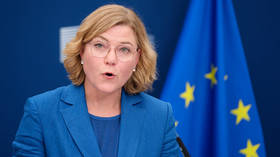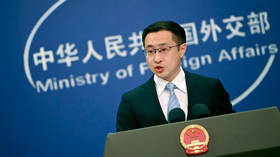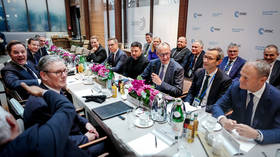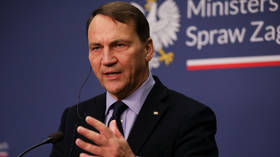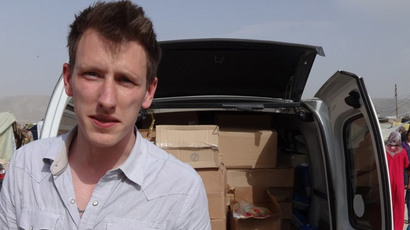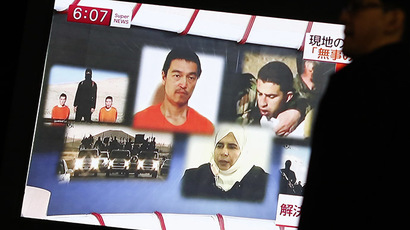FBI helped Al-Qaeda hostage’s family with ransom payment - report
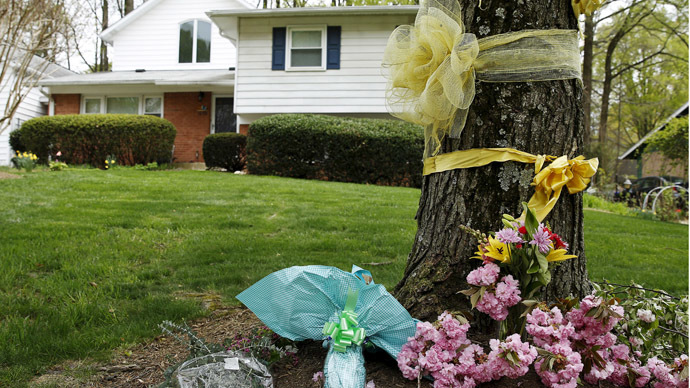
The US government helped the family of Warren Weinstein, an American man held hostage by Al-Qaeda, arrange a ransom payment in 2012. The terrorist group reneged on the deal, though, and Weinstein was killed in a US drone strike in January.
The Weinstein family sought advice from the FBI on dealing with the kidnapping because they “deal with such issues on a regular basis,” a family spokesman told the Wall Street Journal.
The FBI vetted a Pakistani intermediary who negotiated directly with Al-Qaeda on behalf of the family for Weinstein’s release, in exchange for a $250,000 ransom payment in 2012. The agency also provided other intelligence that helped the family decide to go ahead with the exchange, senior US officials told the WSJ.
READ MORE: ‘Abandoned and forgotten’: American abducted by Al-Qaeda in Pakistan begs US for help
“Over the three and a half year period of Warren’s captivity the family made every effort to engage with those holding him or those with the power to find and rescue him,” a family spokesman said. “This is an ordinary American family and they’re not familiar with how one manages a kidnapping.”
The ransom was paid using $100 bills obtained from a “private” source, the intermediary told the WSJ. The family made the payment after receiving a “proof of life” phone call between Weinstein and his wife.
A person who worked closely with the family told Reuters that the FBI was aware of the payment. US policy prohibits the government from paying ransoms for hostages, but the agents weren’t directly involved with the authorization or approval of the transaction, thus not in violation of that policy, officials told the WSJ. Agents instead provided information once they concluded the Weinsteins had already decided to go ahead with the payment “in part to protect the family.”
It’s illegal for families to pay a ransom for US citizens taken hostage in foreign countries, a policy that the Obama administration has signaled it may change, the Syracuse Post-Standard reported.
“The notion that by offering a concession or even a payment, that that could result in the release of your loved one, that seems like a rather attractive option,” White House Press Secretary Josh Earnest said last week. “Unfortunately, this is a policy that’s in place because … paying ransom or offering a concession to a terrorist organization may result in the saving of one innocent life, but could put countless other innocent lives at greater risk.”
The ransom was transferred to Al-Qaeda in Peshawar, Pakistan. That government had a military helicopter on standby to fly Weinstein to the US embassy in Islamabad, the intermediary said. But he never appeared.
READ MORE: US drone strikes kill US, Italian hostages in Pakistan
“The money was delivered, but [Weinstein] didn’t show up,” the Pakistani intermediary said.
A new man then called the Pakistani, saying he represented the kidnappers and that the terms had changed.
“They said [Weinstein] was a political prisoner,” the intermediary said.
The family fears that the $250,000 may have gone to a terrorist group that didn’t, in fact, represent Weinstein’s captors, a source told CNN.
Negotiations for the aid worker continued long after his death.
“They called last week,” the intermediary told the WSJ. “Why would they keep quiet about it?”
Weinstein’s death was not announced until last Thursday, when the White House revealed that he and an Italian hostage were inadvertently killed during a US-launched drone strike that also killed two US citizens involved with Al-Qaeda.




